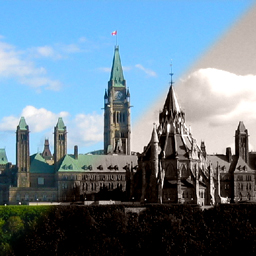Gift cards have become very popular during the last years. I often found this concept strange and was wondering what the advantages and disadvantages were of offering or receiving a gift card. The big question is: do gift cards offer consumer benefits or inconveniences?

The strange principle
Basically, a gift card is a card containing a monetary value that can be exchanged at one or more merchants. The card is purchased for an X value from a merchant by the person offering the gift.
In comparison, a person can give $100 as a gift to a loved one or buy a $100 gift card from a restaurant chain and give it as a gift to a loved one.
Who is the winner?
The big question: why a gift card? For some people, this may look a better gift than receiving money directly. In both cases, the monetary value is the same. It’s only the form that changes.
Let’s look at the different possible scenarios about gift cards. The buyer being the person who buys the card, the recipient being the one who receives the card and the merchant being the entity that sells the card and also the entity that will exchange its value to the recipient. The gift card was purchased at a cost of $100 by the buyer.
Scenario 1: the recipient goes to the merchant and buys for exactly $100 of good with the gift card. The value is spent.
Scenario 2: the recipient goes to the merchant and buys for $80 with the gift card. The remaining amount is $20. The merchant generated $20 in extra. In the end, the buyer offered an $80 gift that cost him $100.
Scenario 3: the recipient goes to the merchant and buys for $120 of good with the gift card. He has to pay an extra $20 because the card covers only $100. The merchant made $20 extra.
Most of the time, the amount spent with a gift card is not exactly the same as the one paid by the buyer of the gift card. It’s quite difficult to make a purchase with an amount that reflects a predetermined value. Unless the amount spent is exactly the amount of the card as in scenario 1, the merchant will generate more money, either because the buyer did not claim the full amount of the card, or because the buyer bought a little more than the value of the card.
Another aspect is that not all gift cards are used by the recipients. Therefore, sometimes, the merchants keep the value of the card. If you receive a card from a merchant and you don’t need their products or services, you’re not likely to use it. Therefore, give it to a friend. You will lose the gift you were given and also waste time finding that friend who may be using it.
Concerning the monetary value, the merchants are the winners. There is virtually no loss for them. Some articles mention that consumers tend to spend more in-store than the value of the gift card.
Conclusion
In conclusion, gift cards can represent a more interesting offer concerning the form than receiving money directly. However, for both the recipient and the buyer, there’s no monetary gain. Therefore, these cards are relatively more expensive gifts than giving a gift in cash. In addition, it takes more time for the buyer and the recipient. Since time is money, there’s still a loss. Finally, if you really want to give a $100 gift to a loved one, give them $100 in cash. The value will remain the same and could be used anywhere and especially for more essential things.







